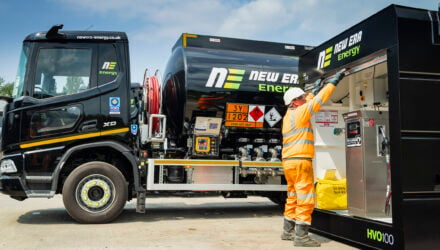Electric vehicles (EVs) are rapidly becoming a cornerstone of the UK’s transportation landscape, promising a greener, more sustainable future. However, the move to EV technology brings a mix of benefits and challenges for businesses.
Understanding the pros and cons of electric vehicles is crucial for businesses navigating the transition to electric mobility. Various alternative fuels are already on the market, but EV technology is currently the most accessible and a popular choice for businesses.
There are now over 1 million electric vehicles on UK roads and, with more public charge points than ever before, is it the ideal time to consider electrifying your fleet?
As part of a 2023 survey, we asked our customers if they had any plans to move to EV within 12 months and only 7% said yes. The biggest pain points our customers identified for electric vehicles were:
- High purchase costs
- Limited vehicle range
- Access to infrastructure
Whilst EVs still generally have higher upfront costs than traditional ICE vehicles, the running costs tend to be lower, helping businesses to warrant the initial investment. As EVs are more expensive to purchase, their insurance premiums tend to be higher. With their advanced technology and parts, repairs can be costly in the event of a claim, higher insurance costs help to mitigate this.
Upfront costs also include the installation of private charge points. For home chargers, this currently costs around £1000 and for EV chargers at a workplace this can go up to £1500.
Although there have been advancements in the driving range of EVs, for those who travel nationwide, multiple stops may be needed to recharge. This could potentially add to driver downtime and longer journeys. Driving ranges have increased considerably over the last few years, with electric cars now averaging 220 miles and electric vans averaging considerably over 100 miles on a single charge. Although this is still undoubtedly an issue for HGV drivers who travel much longer distances, we’re optimistic that this will also be improved in due course.
Charging an EV takes significantly longer than refuelling a conventional vehicle, even with fast-charging stations. In addition, EV charge points are still lacking in more rural areas. This increases the risk of “range anxiety” and puts pressure on drivers to use home charging points instead which is not always possible.
Driving an EV is, for the most part, very similar to driving a car with a traditionally fuelled engine. But due to having no system of gears, EVs are a lot more responsive. The perception of driving an EV van and any associated initial training also needs to be factored into fleets’ EV decisions.
However, progress is constantly being made to overcome these challenges to make EVs a more appealing option for fleet managers.
Top reasons to consider your fleet going electric
- Fewer carbon emissions – EVs have no tailpipe emissions, making them an eco-friendlier alternative to their ICE counterparts. This helps to reduce air pollution, which is crucial for urban areas, and protects our planet.
- Lower running costs – Businesses can save money from the lower BIK rate for electric vehicles which is currently at 2%. In comparison, the BIK rate for diesel vehicles can be as high as 37%. Due to their low emissions, EV drivers do not have to pay vehicle tax either, however it’s important to note that this exemption is changing from 1 April 2025.
- Service and maintenance – EVs have fewer moving parts, so require less maintenance than petrol and diesel vehicles. This can save businesses a significant amount of money on servicing and maintenance costs. Learn more about this with our guide to EV maintenance.
- Capital allowance for electric vehicles – If you have purchased an Electric Company Vehicle for your Fleet from April you can claim Capital Allowance. With 100% first-year allowances, you can deduct the full vehicle cost from your taxable profit. For more up-to-date information you can find this on the HMRC website.
- Charging is quick and convenient – EVs can be recharged in just 20 minutes with ultra-rapid chargers
- Free entry to low emission and clean air zones – More cities are introducing CAZ to tackle air pollution and EVs are exempt from these charges, saving you money. The benefits are even greater for those in London as EV drivers do not have to pay the Congestion Charge.
- Improved brand reputation – Switching to electric vehicles demonstrates your commitment to sustainability which can improve brand reputation and attract more customers and investors to your business. More companies are also registering as “B Corp Certified”, so they must stick to certain green practices and this can impact which suppliers they choose to work with and what vehicles their fleets use.
Some businesses are unable to warrant the significant investment needed to switch fleets to electric. However, in the long term running costs will be reduced and, as the EV market grows and the technology and infrastructure are improved even further, upfront costs should decline, particularly for second-hand models.
Author: Matt Dodds, Head of Strategic Sales and Partnerships, Right Fuel Card











Suyog
( Wednesday, September 4, 2024 - 13:52 )
Very good information on the pros and cons of electric vehicles.